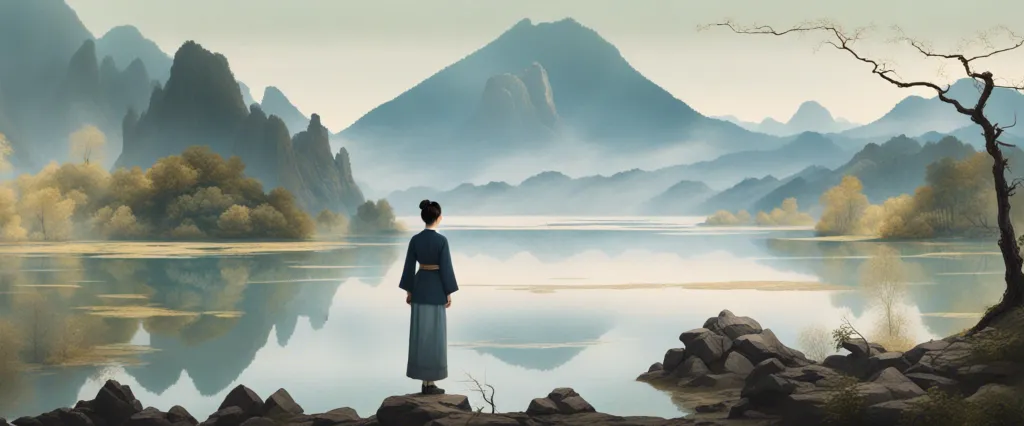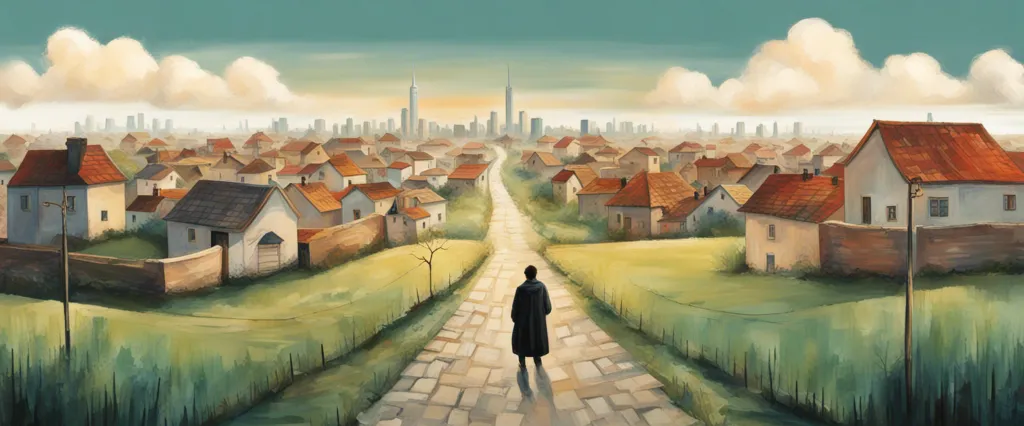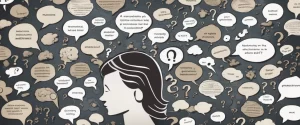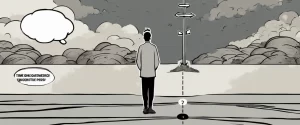
Leaving Mother Lake by Yang Erche Namu and In My Fathers Country by Saima Wahab are two compelling works that offer readers intimate insights into the lives of women from vastly different cultures. While both authors share their personal stories of struggle, resilience, and identity, they do so against the backdrop of distinct societal norms, traditions, and landscapes. As we delve into these narratives, we are invited to explore the complexities of gender, family, and self-discovery in the face of tradition and modernity. Through the lens of these two powerful voices, we are offered a nuanced examination of the human experience and the enduring quest for belonging and autonomy.
Brief Summary of Two Books
Leaving Mother Lake by Yang Erche Namu
Leaving Mother Lake is a memoir by Yang Erche Namu, a woman from the Mosuo ethnic group in China. The book follows Namu’s journey from her traditional, matrilineal society in the remote mountains of Yunnan province to the modern world.
Namu describes her childhood in the community of Lugu Lake, where women hold significant power and authority. She details the customs and rituals of her people, including the practice of walking marriages, where women have the freedom to choose their partners without the constraints of formal marriage.
As Namu grows older, she becomes increasingly disillusioned with her community’s traditions and begins to long for a different life. She eventually leaves Lugu Lake to pursue an education and explore the world beyond her isolated village.
Throughout the book, Namu grapples with her cultural identity and the conflict between her heritage and the modern world. Leaving Mother Lake is a poignant and insightful exploration of tradition, modernity, and the pursuit of personal freedom.
In My Fathers Country by Saima Wahab
“In My Father’s Country” by Saima Wahab is a memoir that tells the story of the author’s experiences growing up in Afghanistan and later returning as a cultural advisor and interpreter for the US Army. The book explores themes of identity, family, war, and the complexities of navigating life between two cultures. Wahab recounts her struggles with tradition, gender roles, and the challenges of working in a war-torn country. Ultimately, the book is a reflection of the author’s journey to find her place in her father’s homeland and come to terms with her own identity.
Comparison between Two Books

Similarities in Cultural History
Both Leaving Mother Lake and In My Father’s Country explore the cultural history and traditions of the authors’ respective communities.
In Leaving Mother Lake, Yang Erche Namu explores the cultural traditions of the Mosuo people, an ethnic minority group in China known for their matriarchal society and unique customs. Namu delves into the history of the Mosuo people, detailing their traditional ways of life and the challenges they face in modern society.
Similarly, In My Father’s Country by Saima Wahab provides an intimate look into the cultural history of Afghanistan, Wahab’s homeland. She reflects on her childhood in Afghanistan, the impact of war and conflict on her family and community, and the struggle to preserve their cultural identity in the face of adversity.
Both books demonstrate the authors’ deep connection to their cultural heritage and the importance of preserving and sharing their traditions with future generations. They shed light on the rich history and traditions of their respective communities, offering readers a glimpse into the complexities and beauty of their cultural heritage.
Divergences in Cultural History
Leaving Mother Lake by Yang Erche Namu and In My Father’s Country by Saima Wahab both explore the cultural histories and identities of the authors, but they do so in very different ways.
In Leaving Mother Lake, Yang Erche Namu tells the story of her life growing up as a member of the Mosuo, a matrilineal society in China. She examines the traditions and customs of her people, including matriarchy, visiting multiple men for friendships and sexual relationships, and how they are at odds with the modernizing world around them. Namu’s narrative is a deep dive into her cultural history, providing a detailed look at the traditions, beliefs, and practices of the Mosuo people.
On the other hand, In My Father’s Country by Saima Wahab explores the author’s experience growing up in Afghanistan and her subsequent move to the United States. Wahab delves into the political and social turmoil in Afghanistan, including the impact of the Soviet invasion and the rise of the Taliban. She also reflects on her family’s heritage and the cultural values passed down to her from her father. Wahab’s narrative is more focused on the effects of war and displacement on her cultural history, highlighting the challenges of maintaining traditions and identity in the face of conflict and diaspora.
The divergence in cultural history between these two books lies in the focus of each author’s narrative. Leaving Mother Lake focuses on the preservation and celebration of the Mosuo culture and traditions, while In My Father’s Country deals with the disruption and adaptation of cultural heritage in the face of war and displacement. Both books offer valuable insights into the complexities of cultural identity and history, but they do so from differing perspectives and contexts.

Conclusion
Both Leaving Mother Lake by Yang Erche Namu and In My Father’s Country by Saima Wahab are highly praised for their unique and compelling storytelling. However, the choice of which book to read ultimately depends on individual preferences.
If you are interested in learning about the matrilineal Mosuo tribe and their unique matriarchal society, then Leaving Mother Lake would be a more suitable choice. Yang Erche Namu’s memoir provides a fascinating insight into her upbringing in this remote and extraordinary culture.
On the other hand, if you are interested in a memoir that delves into the complex political and social issues facing Afghanistan, then In My Father’s Country by Saima Wahab would be a more fitting option. Wahab’s personal account of growing up in Afghanistan during turbulent times offers a poignant and powerful perspective on the country’s history.
In conclusion, both books are worthy of reading, but your choice should be based on your personal interests and preferences.


